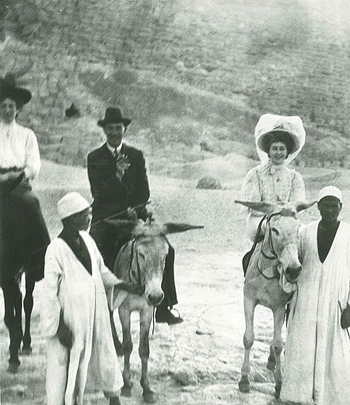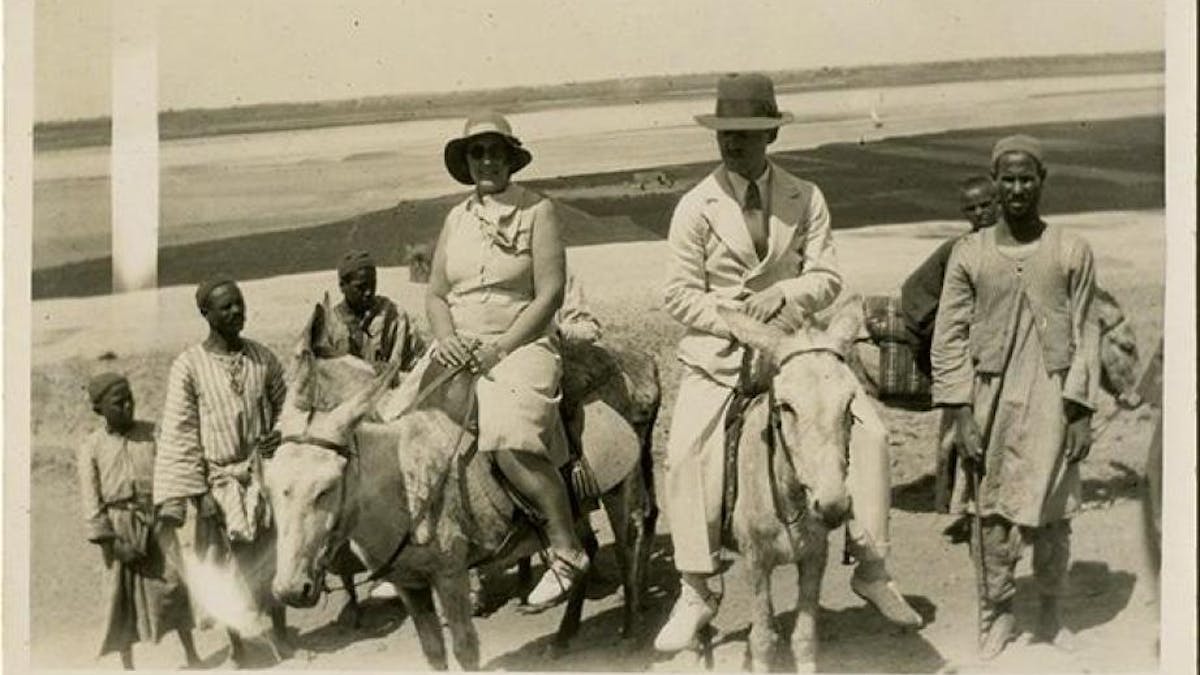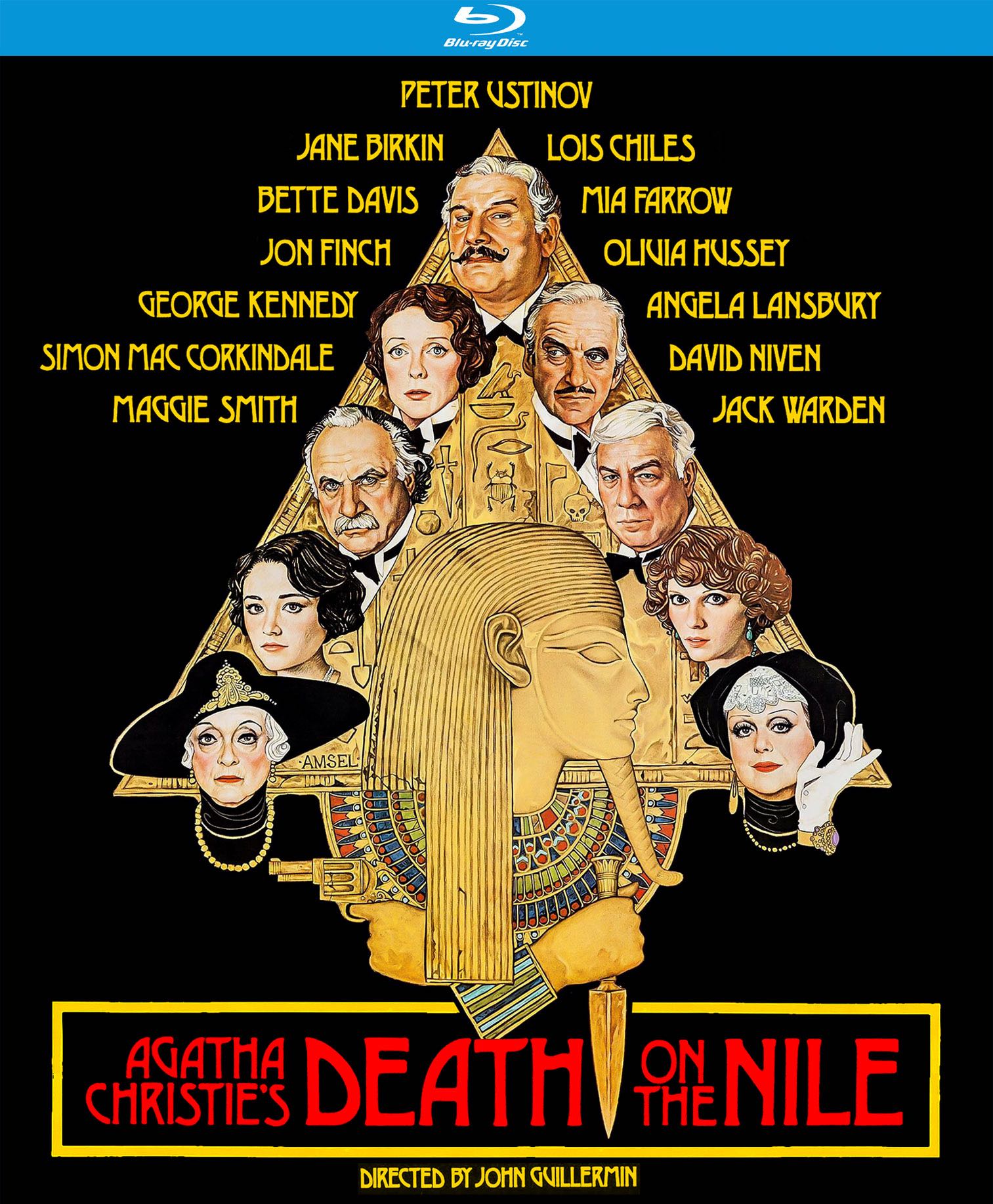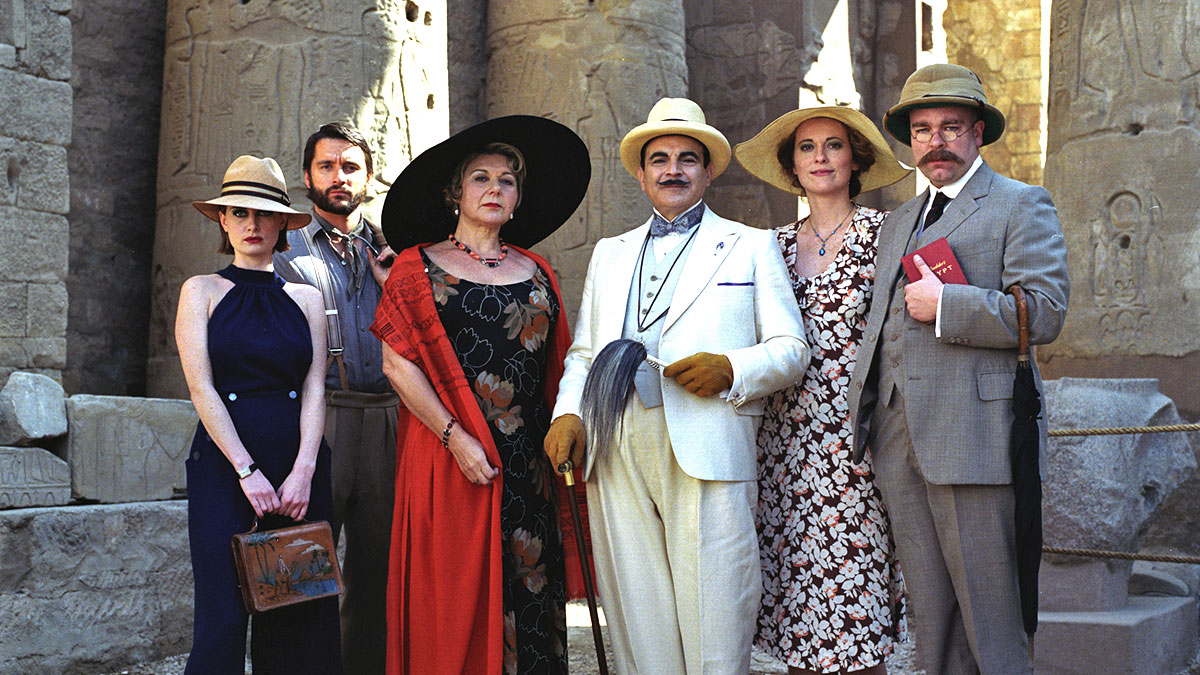Death on the Nile
⛰ What It's About
Linnet Doyle's got everything: money, charm and gorgeousness, but the kicker is that she isn't yet married. When Linett's best friend, Jacqueline, asks her to see her lover, Simon, in order to get him a job, Linnet falls in love with him and then they get married. After a while, Linnet Doyle goes to Egypt on a honeymoon with her best friend's ex-lover; they go on a Nile cruise, where a murder occurs. Unfortunately for the culprit(s), this particular Nile cruise has Hercule Poirot and Colonel Race abroad who unite to solve this mystery.
🧠 Thoughts
Christie in Egypt
What I Didn't Like About It
In my opinion, the book has a lot of drawbacks that I'm going to discuss. First off, everyone can enter any room in the ship without a key. How the heck? Secondly, Christie introduced too many characters and I kind of got lost; although I finished the book, I couldn't tell Mr. Fanthorp and Mr. Furgeson apart. Thirdly, it took too long to get to the anticipated murder (4 hours in the audiobook). Some people might not see that as a drawback and view it as character build, but I disagree because the whole book is 8 hours long. Fourthly, the book spoiled A Murder on the Orient Express for me, so I recommend reading A Murder on the Orient Express before reading Death on the Nile to avoid spoilers.Poirot's Soft Spot (Spoilers Ahead)
Poirot seems to have a soft spot for lovers/couples. He left Tim Allerton without arresting him or building a case against him, and he even gave him a chance to get rid of the evidence that convicted him (the fake pearl necklace). He also knew that Jacqueline had another pistol and although he anticipated that she'd shoot Simon and then herself (which eventually happened), he left the pistol with her.
In the case of Tim Allerton, I think Poirot's view is that justice doesn't need to be served if the culprit isn't a murderer and if he wouldn't commit a similar crime again which fits Tim Allerton's case properly. And why wouldn't he commit a similar crime again, you say? Because first and foremost, Poirot knows about him and second, Poirot thought that his marriage to Ms. Otterborne would keep him occupied from theft. Also, Ms. Otterborne was a decent lady who wouldn't let him commit theft again of course.Race shouted: ‘Where the devil did she get that pistol?’ Poirot felt a hand on his arm. Mrs Allerton said softly, ‘You – knew?’ He nodded.Mrs Allerton said: ‘You wanted her to take that way out?’ ‘Yes. But she would not take it alone. That is why Simon Doyle has died an easier death than he deserved.’ said Poirot.
We can conclude either that Poirot usually ignores the culprit in theft cases in which the stolen property was returned or that he cares more about exposing the truth than actually serving justice.
📌Quotes
“A man doesn't want to feel that a woman cares more for him than he cares for her. He doesn't want to feel owned, body and soul. It's that damned possessive attitude. This man is mine---he belongs to me! He wants to get away --- to get free. He wants to own his woman; he doesn't want her to own him.(Simon Boyle)”
"Do not open your heart to evil.” Her lips fell apart; a look of bewilderment came into her eyes. Poirot went on gravely: “Because—if you do—evil will come…Yes, very surely evil will come…It will enter in and make its home within you, and after a little while it will no longer be possible to drive it out.”
“They conceive a certain theory, and everything has to fit into that theory. If one little fact will not fit it, they throw it aside. But it is always the facts that will not fit in that are significant.”
“But then, how do you know?" "Because I am Hercule Poirot I do not need to be told.”
“Take the Pyramids. Great blocks of useless masonry, put up to minister to the egoism of a despotic bloated king. Think of the sweated masses who toiled to build them and died doing it. It makes me sick to think of the suffering and torture they represent." Mrs. Allerton said cheerfully: "You’d rather have no Pyramids, no Parthenon, no beautiful tombs or temples—just the solid satisfaction of knowing that people got three meals a day and died in their beds." The young man directed his scowl in her direction. "I think human beings matter more than stones.”
📺Tv Adaptations
1. Death on the Nile (1978)






